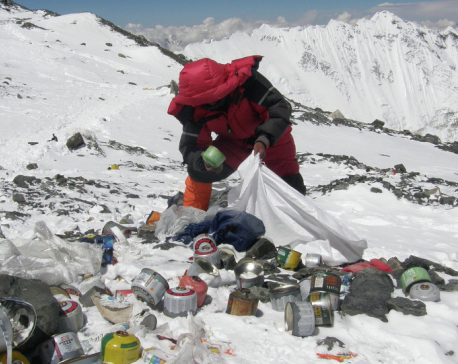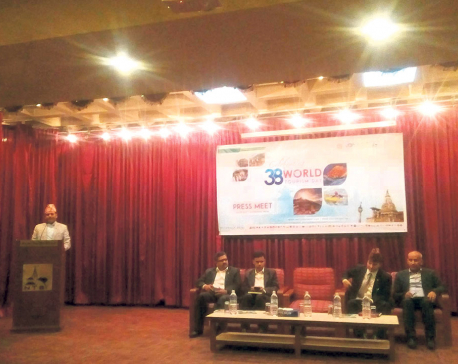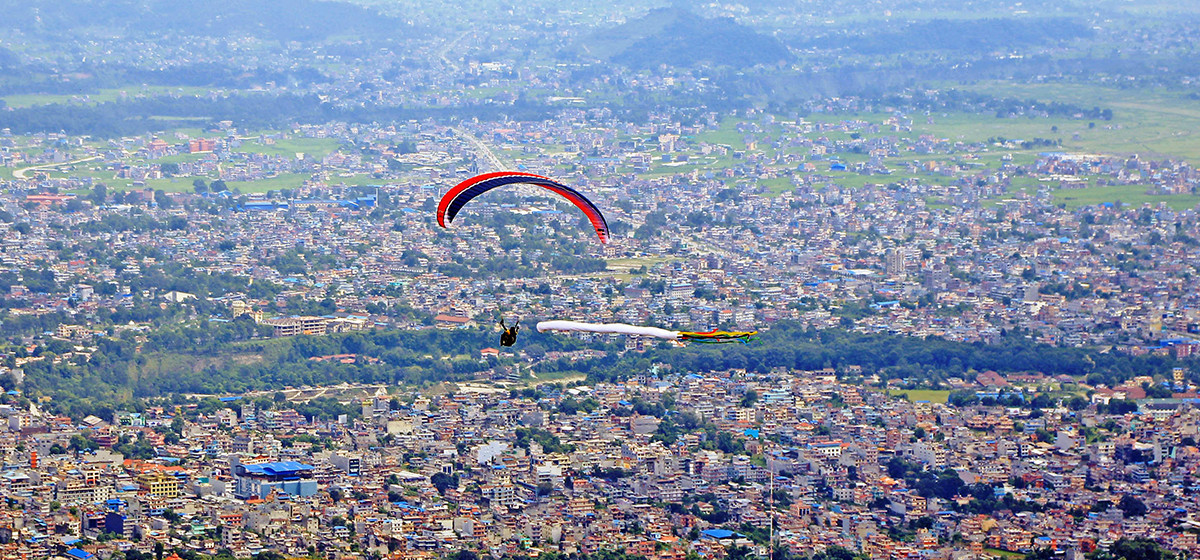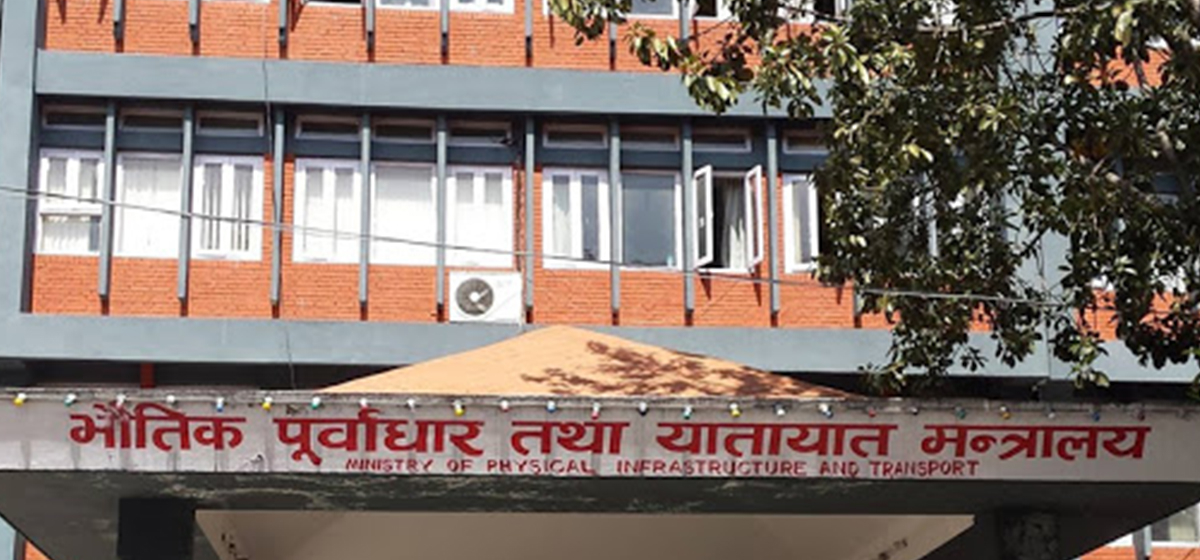
OR
Department of Tourism pledges to do more for Everest cleanup
Published On: May 31, 2017 07:40 AM NPT By: Republica | @RepublicaNepal
French association recovers 5 tons of waste from Everest
KATHMANDU, May 30: With the ambition to conquest the world's highest peak, daring adventurers pay Nepal government a hefty sum of money to climb Mount Everest (8,848 meters). Despite Everest being an important source of revenue for the government, mountaineers who risk everything to reach the top of the world have been complaining of rampant wastes in the Everest region.
Amid complaints that the government which collects US $11,000 per person as the fee to climb Everest is not doing enough to manage the widespread waste in the region, a French association, Montagne et Partage, has successfully collected five tons of waste from the Everest region. The 40-day cleanup campaign "Everest Green project", which had started on April 13, ended on May 23 after recovering waste from Everest Base Camp (5,300 meters) and the South Col (7,906 meters).
According to the Embassy of France in Kathmandu, two tons were sent to Namche for incineration whereas the remaining three tons of recyclable waste is being brought to Kathmandu by road for further processing.
Gérard Clermidy, President of Montagne et Partage, wrote in his blog that 10 high-altitude Sherpas recovered waste such as ladders, tents, used ropes, scrap metals, oxygen bottles, textile waste, plastic objects, and even lithium batteries. The organization spent € 150,000 in the mission.
Defending the accusation that the government has done too little for Everest cleanup, Durga Datta Dhakal, spokesperson for the Department of Tourism (DoT), said they are coordinating with private agencies and also have a dedicated body to manage waste in the Everest region.
“Sagarmatha Pollution Control Committee (SPCC), a government unit, has been tasked with looking after cleanup activities in the Everest region. At present, SPCC has 42 teams which are involved in managing waste in various regions of Everest,” said Dhakal.
“Despite our efforts, we are aware that lots of garbage needs to be removed from the Everest region. We have been working hand-in-hand with the private sector to improve and strengthen Everest cleanup efforts.”
Time and again, the government has been criticized for neglecting the environmental hazards by issuing trekking permits to too many climbers in a season. In this spring window, the DoT has issued Everest trek permit to 474 foreign climbers, the highest number in a single season in history, according to him.
Despite the hefty fees paid by foreign climbers, only a measly 30 percent of it goes to improving infrastructures and providing basic amenities like drinking water to the climbers. “The remaining 70 percent of the fees go to the government treasury. Whether the 30 percent of Everest revenue is sufficient for Everest-related activities is a matter of debate, but we will do more for Everest cleanup in the coming days,” added Dhakal.
You May Like This

Over 10 tons waste removed from Everest since April
KATHMANDU, May 28: Over 10 tons of garbage has been removed from Mt Everest region under a government-initiated mega cleanup... Read More...

Tourism fraternity celebrating World Tourism Day today
KATHMANDU, Sept 25: The Nepali tourism fraternity is celebrating 38th World Tourism Day by organizing various programs across the country on... Read More...

UK pledges more fund for post-quake reconstruction
KATHMANDU, Jan 24: The government of UK has pledge more funds to support Nepal's post-earthquake reconstruction efforts for 2017. ... Read More...
Just In
- Over 16,000 paragliding flights conducted in one year in Pokhara
- MoPIT prepares draft of National Road Safety Act, proposes rescue within an hour of an accident
- Light rainfall likely in hilly areas of Koshi, Bagmati, Gandaki and Karnali provinces
- Customs revenue collection surpasses target at Tatopani border, Falls behind at Rasuwagadhi border in Q3
- Rain shocks: On the monsoon in 2024
- Govt receives 1,658 proposals for startup loans; Minimum of 50 points required for eligibility
- Unified Socialist leader Sodari appointed Sudurpaschim CM
- One Nepali dies in UAE flood


















Leave A Comment